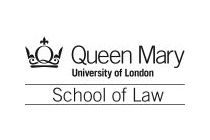Masters Degrees in Counselling - 205 Courses

University of Aberdeen
School of Law

- DPLP - Professional Legal Practice Postgraduate Diploma - PgDip
- International Dispute Resolution LLM
- Oil and Gas Law (Online) LLM
- Oil and Gas Law with Dissertation LLM
- Oil and Gas Law with Professional Skills LLM
- Couple Psychoanalytic Psychotherapy MA
- Couple and Individual Psychodynamic Counselling and Psychotherapy MA Postgraduate Diploma - PgDip
- Foundation for Counselling and Psychotherapy Training Graduate Certificate
- Psychodynamic Counselling and Psychotherapy MSc
- Psychodynamic Counselling and Psychotherapy with Children and Adolescents MSc
- Humanistic Counselling and Psychotherapy Postgraduate Diploma - PgDip
- Psychodynamic Counselling and Psychotherapy Postgraduate Diploma - PgDip
University College Dublin
UCD Sutherland School of Law

- Dispute Resolution (Mediation) Professional Diploma
- Counselling and Psychotherapy MA Postgraduate Diploma - PgDip
- Integrative Counselling and Coaching MSc Postgraduate Diploma - PgDip
- Counselling MCoun Postgraduate Certificate - PgCert Postgraduate Diploma - PgDip
- Counselling (Interpersonal Dialogue) MCoun
- Counselling Studies MSc
- International and Cross-Cultural Counselling Studies Master of Science - MSc (PG)
Keele University
School of Psychology

- Counselling Graduate Certificate
- Counselling and Psychotherapy MSc
- Counselling MSc Postgraduate Diploma - PgDip
- International Dispute Resolution LLM Postgraduate Certificate - PgCert Postgraduate Diploma - PgDip
University of Roehampton
Psychology

About masters in counselling
Discover a range of masters degrees in counselling here at Postgrad. Find masters programs offered by a huge selection of universities across our online course finder, with a range of full-time, part-time and online counselling masters degrees available.
Studying a masters in counselling provides you with the skills and knowledge you’ll need to become a counsellor or psychotherapist, where you’ll study a range of therapy techniques designed to improve people’s mental health.
Many counselling masters degrees are accredited, meaning you’ll be eligible to become a registered counsellor or psychotherapist once you’re qualified. With a range of courses available, you can specialise in an area of study that suits you, including child counselling, humanistic counselling, counselling psychology and many more.
Masters in counselling come in a range of forms depending on how you wish to study, such as MSc, PG Dip and PG Cert courses. Entry requirements usually require an undergraduate degree in a relevant subject, such as psychology or sociology.
If counselling sounds like the perfect study option for you, apply for a masters in counselling today.
Why study a masters in counselling?
Counselling is a hugely rewarding career – you’ll be helping people fulfil better lives with vital mental health support. With a masters in counselling, you’ll be able to work in a variety of industries and contexts.
Whilst this sets you up perfectly to become a counsellor, your qualification will also help you excel in other career settings, such as healthcare, welfare, charity, education, business and human resource roles.
There may also be the option to study a particular therapeutic technique as part of your counselling masters degree. For instance, cognitive behavioural therapy (CBT) or transactional analysis (TA).
Explore counselling masters degrees at Postgrad today.



















